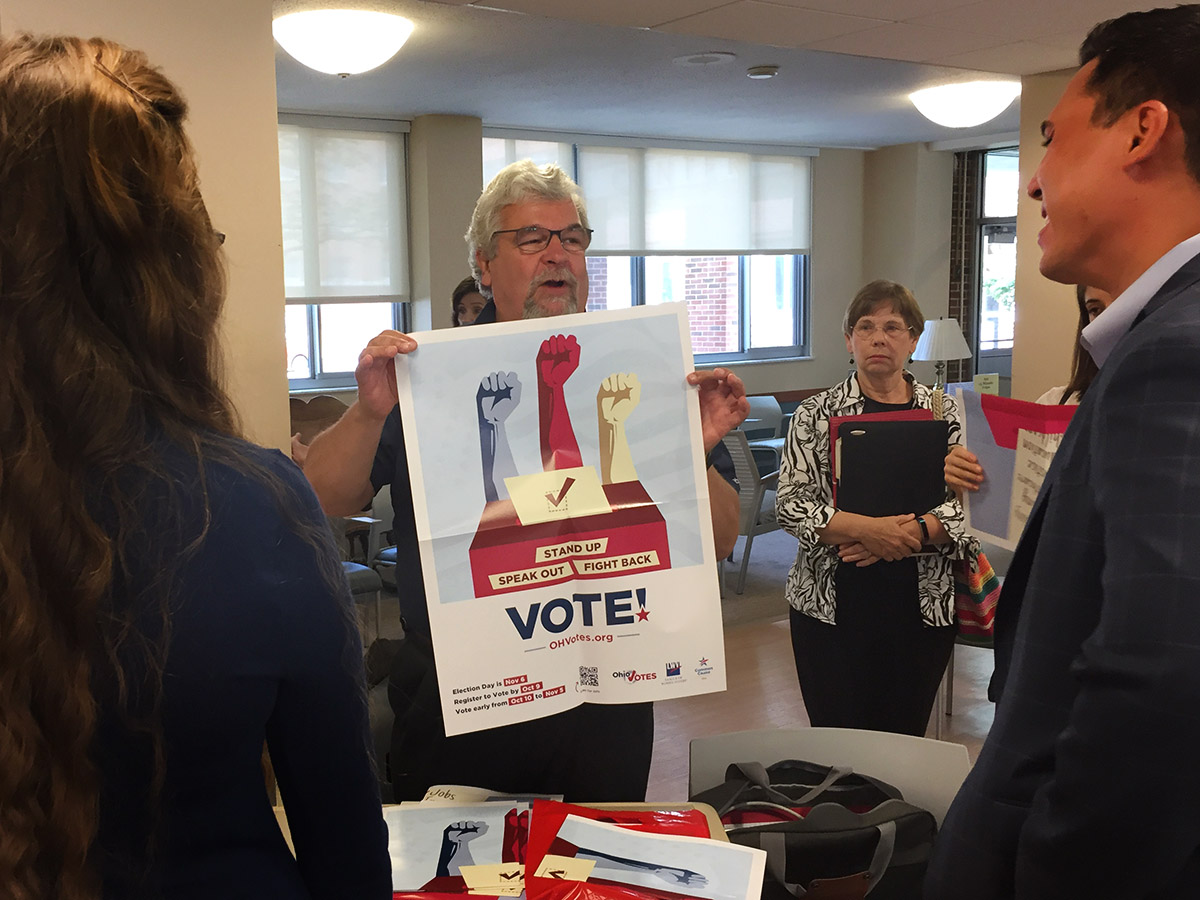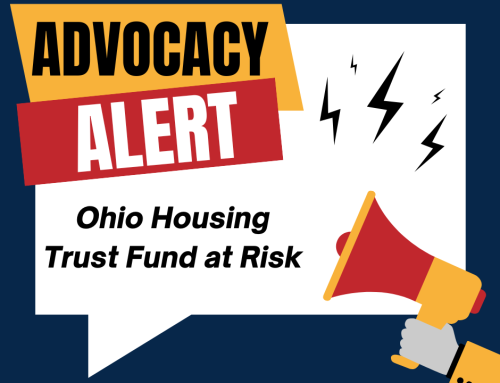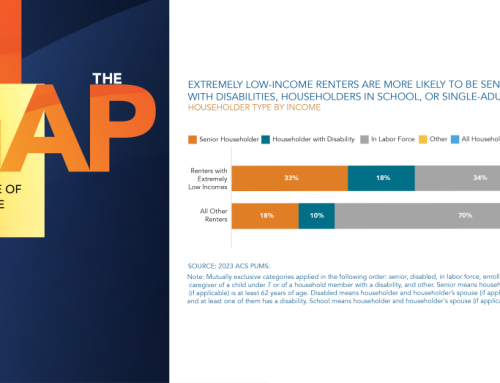Labor Day is approaching, which means campaign season is just around the corner. That thought might give you a sense of nausea, but the fact is the upcoming campaign season is a great opportunity to promote the message of ending homelessness and fighting housing insecurity.
The media has been talking more and more about the growing shortage of affordable housing, but we’re still not hearing much about it from the candidates. Newspapers throughout Ohio covered our report showing that only two out of the 10 most common jobs actually pay employees enough to cover the rent. And a recent state-issued study provided further evidence that more and more renters can’t afford housing and wind up getting evicted.
After many years of rising rents and wage stagnation, these problems have spread well beyond those living in poverty. Nearly half of all renter household in Ohio are spending more than they can afford on housing, including 400,000 families who spend over half their income on rent. But we still don’t hear politicians saying much about these issues, even though this housing crisis creates huge economic barriers for our state, regardless of who wins in November.
We’re not waiting for the candidates to offer solutions. We’ve drafted a plan for the next governor to fight housing insecurity in Ohio by: expanding the Ohio Housing Trust Fund, developing new models of rental assistance, investing in rapid rehousing to fight homelessness, reducing evictions that cause deeper poverty, and increasing affordable housing production and preservation. At the federal level we need courageous leaders willing to push for expanded housing opportunities, fight the administration’s continuing proposals to obliterate HUD’s budget, and gut fair housing protections.
We’ve been working in recent months to get the candidates more informed. For example, last month we sponsored the Ohio Candidate Forum on Disabilities Issues to question candidates running for governor and U.S. Senate about housing issues. We coordinated an event in Lake County for Congressman David Joyce to learn how supportive housing helps people recover from homelessness, mental illness and addiction. And earlier this month we co-hosted a housing tour for U.S. Rep. Marcy Kaptur in Cleveland, where she visited elderly constituents who described how rental assistance keeps them healthy, independent and stably housed.
When elected officials like Reps. Joyce and Kaptur see for themselves how affordable housing improves the lives of their most vulnerable constituents, they are willing to stand up for these programs. However, some politicians would rather punish poor people for their plight.
For example, Hamilton County Prosecutor Joe Deters has been in the news a lot lately for his absurd efforts to ban all homeless camps throughout the entire county. Deters wins the Grinch Award for the cruelest over-reaction we’ve seen in Ohio, possibly ever.
Deters’ countywide homeless ban isn’t just heartless. It’s a stupid waste of public resources. Efforts to criminalize homeless people aren’t new, but they are especially galling given the evidence that permanent housing solutions aren’t just more humane than jails and shelters – they’re often more cost-effective in the long run. And without more affordable housing, we’ll continue dealing with homelessness and all its negative impacts on healthcare, education, child welfare, the justice system and the economy.
That’s the message that the politicians need to hear now, before they get elected to lead the state next year. We’re talking about it, but candidates really need to hear from you that housing insecurity is a major issue for our state. Everyone who cares about affordable housing has a responsibility to voice their concerns. We need you to speak up at campaign events and community forums, call and email their offices, tell pollsters you’re concerned about affordable housing, write about it in letters to the editor. (We’re going to launch the first ever advocacy contest with cash awards for the most effective advocates – keep an eye out for that announcement soon!)
Ultimately, voting is the most powerful way to put our issues on their agenda. If more people in poor communities vote, politicians will pay more attention to poor communities and enact better policies to lift people out of poverty. That’s why we’ve expanded our Ohio Votes initiative and redoubled our efforts to register voters in affordable housing projects, food pantries, community centers and other nonprofits throughout the state that serve hundreds of thousands of low-income Ohioans every day.
So if you’d like to join our efforts to mobilize low-income voters, contact our Ohio Votes Coordinator Maria Bruno. If you want to find out more about hosting an event for your elected officials, contact our Advocacy Director Gina Wilt. If you want to become a member and support COHHIO, contact our Communications/Development Director Marcus Roth.
As always, thanks for supporting our efforts to end homelessness in Ohio,
Bill Faith
Executive Director








